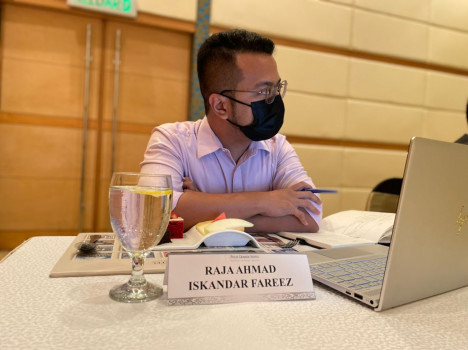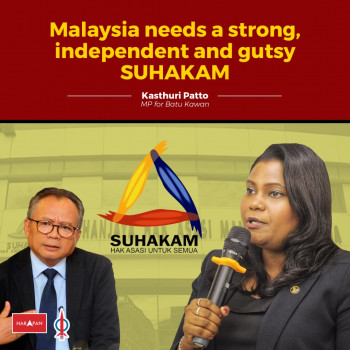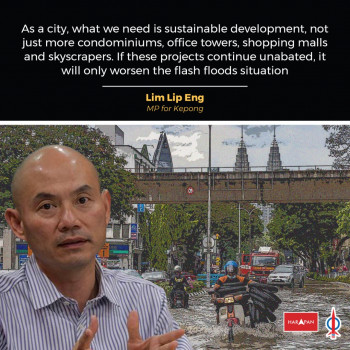by Steven Sim
The Grand Ayatollah Ruhollah Khomeini famously once said of the Iranian Revolution; it is not about the price of watermelon, a popular fruit in Iran. This indicated that the Ayatollah’s politics were aiming at loftier goal, and economic hardship was even to be tolerated to achieve it.
On the other hand, Ibn Saud, the founder and first ruler of Saudi Arabia, when confronted with the economic problem of hunger in his land, instructed the then newly formed American oil conglomerate, Aramco to simply increase the salary of their Saudi workers. Inflation was the natural result.
Malaysia or rather UMNO’s politics have always been a combination of Khomeini and Ibn Saud. Sometimes feed them with lofty ideals, sometimes simply give out more money. The former we have come to know as “Ketuanan Melayu”, and the latter is called “subsidy”.
Recent events were demonstrations of the two mechanisms at work.
“Allah” issue: Piety or ideology?
The Islamic authorities in Pakatan Rakyat states – weird isn’t it; Muftis in Johor or Perlis or Pahang have not uttered a word on this – began a witch-hunt on Christians using banned Bahasa Melayu religious terms, 35 of them in Selangor, 40 in Penang. On the surface it does seemed like a typical Islam versus Christianity drama; the regime is upholding the sanctity of Islam against would-be challengers. Yet it cannot be that easy.
All over the world, Islam and Christianity do not fight like that, not over words. Muslim scholars from Sheikh Yusuf al-Qaradawi to most recently, Reza Aslan have offered both criticism and cynicism against the Malaysian government’s stance on the “Allah” issue. Local Muslim intelligentsia and even Muslim politicians from both sides tried, in vain, to “theologise” the government out of its absurdity.
This is not Islam versus Christianity, much less Muslims versus Christians. No.
This is going back to the core of UMNO baru, it’s Ketuanan Melayu ideology. This time, the ideology is manifested in the sacredness of the Malay language which can only be appropriated by the superior race. Now it seems that even in language, just like everything else within the Ketuanan Melayu worldview, only the superior race has a special and privileged access.
Price of kangkung
Then, after weeks of tension over the “Allah” issue, Prime Minister Najib Razak humoured Malaysians with his statement on the decline of the price of water convolvulus or more popularly known as “kangkung”, a favourite local vegetable. Unlike the Grand Ayatollah Khomeini, the UMNO-Barisan Nasional government is concerned with the price of kangkung.
Subsidy works as a double-edged sword for the regime. On one hand, it fueled the rentier-economy. On the other, subsidy helped cushioned the impact of a high growth, low wage economy against the masses to avoid major public discontent. The federal government dished out subsidy on everything from housing to food to petrol to toll to transport. Fishermen and farmers are subsidised to keep their produce, such as kangkung, cheap.
According to a report by Pemandu, at our peak, we spent RM74 billion in 2009 on various subsidies, amounting to 4.6% of our GDP compared to Indonesia at 2.7% or the Philippines at 0.2%. All this to keep the price of items artificially low so that the people remained happy while rentiers plundered away.
The cracks in the walls
Ideology and subsidy are the final bastions of the UMNO regime. The fact is, the one is indefensible in this age and the other is unsustainable in this economy. Strong as these fortresses may be, cracks are showing in their walls.
Ketuanan Melayu does not make sense anymore to the majority of Malays who aspire for good governance over the regime’s corruption, moral and political. Even UMNO finds it hard to believe itself these days, evidenced by the hiring out to Perkasa its role as the defender of the Ketuanan ideology. Perkasa plays a more convincing role than the backslidden UMNO. Yet, today, even Perkasa is faltering.
As for subsidy, we know the story. Federal Minister Idris Jala warned of the government’s irresponsible spending and escalating debt. We are heading towards bankruptcy in 2019, and the only way forward is to cut, no sorry, “rationalise” subsidy. For whatever its worth, the current Prime Minister was more prepared to take liberal measures with regards to the economy. In 2010, he initiated plans for subsidy cut just a year after his first appointment as PM. The clock is ticking for UMNO even as Najib dismantles the very fort which prevents an angry (and hungry) mass from bringing down the regime. With a major wave of inflation descending this year and more subsidy cuts to be expected, it is doubtful that cheap “kangkung” will save UMNO, or at least Najib.



